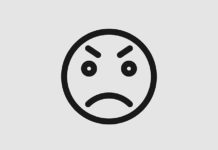Sheller’s Appeal Demonstrates FDA’s Indifference to Drug Harm
As I wrote in Let’s All Support Stephen Sheller’s FDA Petition to Revoke the Pediatric Approval of Risperdal, Stephen Sheller's law firm, which represents hundreds of boys who were prescribed Risperdal and then grew breasts (gynecomastia) as a result, filed a petition with the Food and Drug Administration (FDA) to change the label and revoke its approval for use on children. During the course of discovery for litigation in its Risperdal cases, Sheller became privy to documents not provided to the FDA that showed Johnson & Johnson hid the problem. This is a very important case. If it is successful, it will give hope of forcing the FDA to follow its mandate to protect the public from harmful drugs.
In Defense of Anger
The therapy industry has aided and abetted the rejection of anger our society is hell-bent on, and made it astoundingly difficult to know what healthy anger looks like. I clawed myself apart trying to “heal” from all this anger, which compounded with every failure to dispel the anger until I was basically a human-shaped sack of rage.
DSM-5’s “Speculative” 2002 Diagnostic System Based On Expected Gene Findings
According to a leading group of psychiatric genetic researchers, writing in 1999, “From the perspective of psychiatric genetics, the Human Genome Project is an immense factory producing and refining the tools we will need to discover the genes that cause mental illness.” A 2002 “speculative outline” by a group helping to revise the DSM envisioned a future DSM-5 practice of classifying disorders on the basis of "the patient’s genotype, identifying symptom- or disease-related genes, resiliency genes, and genes related to therapeutic responses and side effects to specific psychotropic drugs.” A dozen or so years ago, at least some of the DSM-5 architects believed that genes would at long last be identified and would be integrated into the next version of the DSM. As we know, this did not happen.
The Never Ending Story: How 2nd Story Respite House Was Saved
We had built relationships with provider and peer organizations and NAMI. We had learned how to interface with the system and share the peer perspective. Ultimately, our relationships saved us. We had worked to start our own organization with the same providers who now were in position to step forward in our defense.
Psychiatric Profiling as Blood Libel
We are seeing an increasing cycle of high-profile media stories linking an act of random multiple shooting to an allegation that the perpetrator is "mentally ill." We have to understand that it is nothing more than a libel. It cannot be debated rationally, and every time we have tried to point out the the absence of evidence for a statistical linkage, these rational arguments have no effect; instead they almost seem to add fuel to the fire. I want to point out something about how profiling works and why it is always wrong.
Physician, Heal Thyself (Luke 4:23)
Big Pharma has done their job so well that they no longer need to bribe doctors with cash to get them to tout the party line. Their neurobiological belief system — that complex mental states can be meaningfully reduced to neurological structures and biochemical processes — is now so well entrenched in our culture it is becoming more and more difficult to find folks who doubt it, especially in medical schools and in departments of psychiatry.
New York Attorney General’s Office Should Take a Bow For GlaxoSmithKline’s Record Breaking Fine
I was glad to see that the New York Times' reporters covering GlaxoSmithKline's $3 billion settlement tipped their hat to former New York Attorney...
Language of Mental Illness “Others” People: It’s a Human Rights Violation
When separation and microaggressions are legitimized and put into public policy and discourse, we become second class citizens and subhumans. This is oppression and bigotry systemically supported and then denied by almost everyone, including those most seriously affected. We come to believe these lies.
Want to Be Drug Free? It’s Time to Live More Simply
Creeping from the shadows, emerging from the glen, is a cry for an existence much better than the one we’re living in. It is clear that drugs are becoming our crutch, an excuse to avoid experiencing the trials and tribulations as such. So below is an entreaty to return to simplicity, one in which much of what we need is available so readily.
Civilians
If you’ve ever driven your car in a blizzard, you realize that the biggest hazard isn’t the snow or ice on the road; it’s mostly other drivers. You of course have your own vehicle (and welfare) to look out for, and it’s certainly stressful driving slowly, keeping traction on the slippery tarmac, maintaining concentration, watching out for black ice, and so on. But these variables remain somewhat under your control. Other drivers; not so much.
Critical Psychiatry Textbook, Chapter 8: Depression and Mania (Affective Disorders) (Part Two)
Peter Gøtzsche discusses misleading statements about depression pills and dosing.
Critical Psychiatry Textbook, Chapter 16: Is There Any Future for Psychiatry? (Part Six)
In the final blog in Peter Gøtzsche's series, he presents his concluding thoughts and suggestions for the future of psychiatry.
Effective Tactics for the “Rehumanizing Resistance”: Real Politics 101, Part Two
In Part Two, I discuss strategy and tactics for the Rehumanizing Resistance, including: (1) Traditional, Personal, and Underground Politics; (2) Direct Action and Confrontation: When It Can and Cannot Succeed (3) Organizing: Taking Advantage of the Current Cultural Climate; (4) Alliances and Coalitions; and (5) Film and Media. In Part One, I discussed how the Resistance has been winning scientific battles but losing the war against the expansion of influence of First-Order Psychiatry (which includes American Psychiatric Association and Big Pharma), and how this is due in large part to the First-Order’s effective political tactics and the Resistance’s political naivety.
The Chemical Imbalance Theory: Dr. Pies Returns, Again
Psychiatrist Ronald Pies published a recent piece in the Psychiatric Times titled "Debunking the Two Chemical Imbalance Myths, Again." The subtitle: "A little learning is a dangerous thing." And indeed it is. But not nearly as dangerous as a psychiatrist with a head full of spurious diagnoses and a ready prescription pad.
Re-establishing My Credentials: Psychiatric Survivor Activists Are Needed Now!
For more than four decades, I have worked as a psychiatric-survivor human rights activist. Then, at the end of 2012, I broke my neck. As readers of my blog posts, such as those on Mad in America, know, I have devoted the past few years to rehab and activism. But it has been a while since my last personal blog. Let me sum up my Mad Pride journey today, because a lot is changing.
A Recovery Movement Jedi Master, Bill Anthony, Died Recently
The first time I met Bill was in 1991. I was just a couple years out of residency, and he was already the legendary “father of psychiatric rehabilitation.”
Dualism and the Mind-Body ‘Problem’
The proposal that there are differences in the way we understand the human body and human activity seems to make people particularly uneasy. It is often misunderstood as illustrating the ‘mind-body problem,’ and held up as an example of the great crime of ‘dualism.’
My Top 11 Ways to Reunite for a Mental Health Revolution!
My very good friend Marcia Meyers of Portland, Oregon is one of the most powerful leaders I have seen in my nearly 40 years of activism in the little-known movement for deep change in the mental health industry. She joined my amazing wife Debra, some friends and me for a backyard party at our Eugene home this summer and brought to my attention an issue that deserves a larger audience. Marcia’s story riveted me because it involves activism, madness, psychiatric torture of her beloved daughter, Unitarianism, secret poisoned-pen letters, Scientology and global warming!
This Is Your Personality Test Result On Capitalism
Personality tests function for an employer, intentionally or otherwise, much like diagnostic criteria function for the mental-health system: these labels determine who gets resources that capitalism itself makes scarce — not only basic necessities like food, clothing and shelter, which require money to obtain, but empathy, understanding and support, which are kept in short supply.
On Access Intimacy, Mental Health, and Rosebud the Psych Service Goat
Access intimacy is the intimacy I feel with many other disabled and sick people who have an automatic understanding of access needs out of our shared similar lived experience of the many different ways ableism manifests in our lives. Together, we share a kind of access intimacy that is ground-level, with no need for explanations. Instantly, we can hold the weight, emotion, logistics, isolation, trauma, fear, anxiety and pain of access.
A Bridge Over Troubled Water: What’s This About Being a Hopeless Reformer?
My role within the Mad in America community has been to provide a perspective largely conditioned by six years as a state mental health commissioner. I believe that, realistically speaking, psychiatry isn't going away. Cultures in everything from state hospitals, to community-based inpatient programs, to crisis services, to outpatient settings don't change quickly.
Finding the Meaning in Suffering: My Experience with Coming off Psychiatric Drugs (in a...
For the last month or so, Mad in America has been hard at work building a directory of “mental health” providers across North America (and eventually, we hope, the world) who will work with people wanting to come off psychotropic drugs. I’ve been honored to have been tasked with the responsibility of building this directory, and I have to say, it’s been inspiring to talk to people all over the country who do this work, and who “get it”.
Can Co-production Really Transform UK Mental Health Services?
Is "co-production" public service citizen involvement? Is it individual, ‘responsibilised’ health and social care consumerism? Is it power shifting to communities through participatory governance? Perhaps it’s the ultimate post-modern policy concept. But can it work for mental health?
“Prisons Without Bars” – Forced Institutionalization of People with Disabilities
In the wake of deinstitutionalization, we no longer have the vast asylum system we once did. Instead, something more insidious has taken root — for-profit institutions that call themselves neurorehabilitation centers, group homes, and other official-sounding names.
Electroshock Survivors Taught Me Eight Lessons in International Protests
Last month almost 30 grassroot protests of electroshock were held in nine countries around the world. I had the great honor of organizing the protest here in Eugene, Oregon, USA, even though I am a survivor of psychiatric drugs and not electroshock. Electroshock is the psychiatric procedure in which electricity is run through people’s brains. Here are eight lessons that this historic event taught me.





















